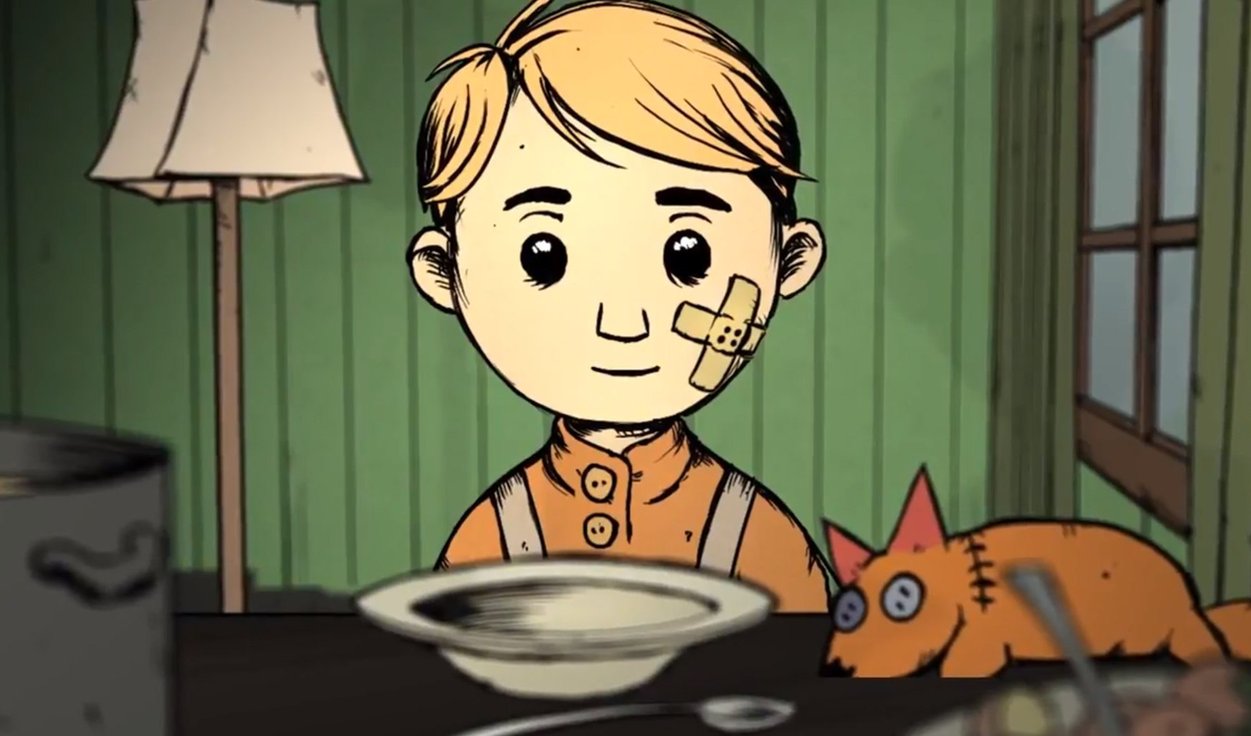Have You Got a FOMO Baby? Signs Your Little One Has a Serious Fear of Missing Out!

Been hearing the term “FOMO baby” bandied about recently and wondering if you have one on your hands yourself? We’ve got all the information you need below—from what exactly a FOMO baby is and the underlying causes, to how to handle your very own little one with ‘fear of missing out.
The most important thing to bear in mind is that you’re not alone: many parents have FOMO babies, so be kind to yourself.
Contents:
- What is a FOMO Baby?
- Is FOMO Baby a Real Thing?
- What are the Causes of FOMO Baby?
- Signs Your Baby Has FOMO (Fear of Missing Out)
- Are Parents of Twins Likely to Notice FOMO More?
- When Does FOMO Kick In?
- Tips for Dealing with Your Own FOMO Baby
- FAQs
What is a FOMO Baby?

Ana Sha/Shutterstock.com
All parents will have experienced this scenario: a child desperately fighting sleep for fear of missing out on something. This phenomenon can start very early—even when kids are very young babies—when a natural curiosity about the world around them and their ever-growing ability to interact with it just makes sleep seem something to be avoided. FOMO babies are likely to be easily distracted when it comes to eating, too, and find it difficult to play independently.
Social media and parent networking sites have really brought the concept of FOMO babies into the mainstream, with moms and dads posting their stories of babies and young kids fighting bedtime… just in case anything exciting happens. The problem is, for very little children, everything is exciting! A quick look at these platforms will reveal just how many parents are dealing with the challenges of a FOMO baby.
Is FOMO Baby a Real Thing?

DinaPhoto/Shutterstock.com
The term ‘FOMO baby’ isn’t a recognized medical term, but many parents will assure you it’s real! Although some babies (especially newborns) are happy to sleep most of the day, many little ones show strong resistance to naptime or bedtime.
Some pediatricians posit that, just like adults, babies have different sleep needs and sensitivities and, while some can drop off to sleep quickly and easily, others need more time to process their surroundings. This heightened sensitivity to their environment can mean that these babies miss their body’s sleep signals, or are able to override them. Bad news for mom and dad—as well as for the baby, who can go from happy balls of giggles to an overtired meltdown monster in the blink of an eye.
What are the Causes of FOMO Baby?

kapinon.stuio/Shutterstock.com
There are many reasons that you may have a FOMO baby on your hands. For example, some pediatric sleep specialists suggest that the amount of sleep a baby needs is genetic, meaning—sorry mom and dad—some kids just need more sleep than others.
The term “FOMO babies” may be relatively new, but the recognition of sleep resistance in young children has been around for a long time. There are lots of things that exacerbate this tendency, such as:
- the home or sleeping environment,
- growth spurts and advances in cognitive development,
- a growing awareness of the world.
All of these factors can cause restlessness, and mean that little ones are worried that, the moment they close their eyes, they’re going to miss out on something. Similarly, FOMO babies may find it difficult to finish nursing or get through their bottle, as they’re constantly distracted, and want to turn around to take in every detail of their world.
Signs Your Baby Has FOMO (Fear of Missing Out)

LeManna/Shutterstock.com
If the above seems to describe your baby (and your life!) to a T, then your kiddo could be a FOMO baby. Trust us, you’re not alone, and you can do plenty of things to help your little one drop off to sleep more easily—we’re going to get into this below.
Typical “symptoms” that FOMO babies share include:
- resistance to naps and bedtime,
- an inability to self-soothe,
- fussiness at feeding time—they seem hungry but also want to look around at their surroundings.
Some FOMO babies also seriously don’t like being put down, and become tearful at any attempts to do so—after all, you may be about to do something that they don’t want to miss out on! These little ones may also be unable to play independently and manifest a constant need for stimulation and interaction.
FOMO babies may not display typical “sleepy” signs, even if they’re desperately in need of sleep. And once they do appear sleepy, it may be too late, and you’ve got an overtired baby to deal with. Further, things that may have worked with your other child (or children) such as a nice relaxing bath before bed, could actually make things worse: the feeling of the water and the sight of all those bubbles may cause serious excitement in a FOMO baby.
For older babies, between around twelve to twenty-four months, FOMO may be fuelled by developmental advances that result in the dreaded sleep regressions. Children of this age could be keen to try to climb out of their cot or get out of bed to join in the “fun” with older siblings.
Growing up means exploring more! Ensure your child’s safety with Findmykids as they gain independence. Track their location, set safe zones, and get real-time alerts to stay connected and worry-free.
Are Parents of Twins Likely to Notice FOMO More?

Zoia Kostina/Shutterstock.com
Pediatricians tend to agree that having twins makes FOMO neither more noticeable nor more likely—it’s not something that’s unique to or more commonly seen in twins. Just as no two people are the same, even identical twins will have their own personalities and sleeping patterns. One may be a FOMO baby, or both, or neither.
However, if one twin is a deep sleeper and the other a light sleeper, the light-sleeping twin may more easily awaken and have trouble getting back to sleep than his deep-sleeping sibling. Where this is the case, parents may wish to consider moving the babies’ cribs away from each other or taking the wakeful twin out of the room to allow the other to continue sleeping.
When Does FOMO Kick In?

Ramonki/Shutterstock.com
Whatever distractions or noises are going on around them, most newborns are able to fall asleep anywhere, and at any time. Around four months of age, however, things change: a baby’s brain has undergone huge developments since birth meaning that they’re much more alert now, and as a result, are more easily stimulated. It’s at around this point that FOMO could kick in.
It’s important to take some gentle steps to deal with FOMO behaviors as if left unresolved, they can cause serious over-tiredness in babies (which may lead to increased overstimulation and tantrums), and hamper the development of self-regulation skills. Plus, of course, FOMO behaviors can cause significant parental fatigue and stress.
Read also: Toddler Tantrums: What They Are and How to Handle Them?
Tips for Dealing with Your Own FOMO Baby

Zhuravlev Andrey/Shutterstock.com
So now we’ve had a look at some of the psychological aspects of FOMO babies, and the signs that you might have a FOMO little one yourself. What are some tips and tricks for dealing with this situation, and helping your baby to sleep and eat properly? Try these:
- Don’t compare your child to others. It can be easy, when looking at social media posts from other parents, to think that all babies sleep ten hours straight a night. This isn’t the case, and comparisons are likely to just add to stress.
- Keep in mind that you’ll likely need to use a different approach for each child. What might have worked well for your eldest child may not be effective for your youngest.
- Create a calm sleeping environment with minimal distractions. In addition to ensuring that the room is at the right temperature, you could consider using a baby white noise machine or blackout blinds. Having a consistent sleep routine is often also really helpful.
- Prioritize the first nap of the day. If possible, put your baby down for this nap at home, especially if you’ll be out and about later and your little one will need to nap on the go—or possibly not at all. As the saying goes, “sleep begets sleep” and the better daytime sleep your baby has, the more likely it is she’ll sleep soundly come bedtime.
- When it comes to separation anxiety (which typically peaks at around six to nine months of age), try introducing a special item connected to you, such as a blanket or stuffed toy. Keep it close to you so that it picks up your scent, and incorporate the item into your baby’s sleep routine. This can be both very calming for your child and help them learn to self-soothe.
- Consider using a carrier if your baby becomes distressed every time you try to put them down—as well as soothing your little one, this frees up your hands to get a few things done.

Monkey Business Images/Shutterstock.com
- Help your baby—once they’re old enough—to play independently. Start small with this. Introduce a new toy or activity and simply stay close for a few minutes, allowing your baby to explore and discover for themselves. Build this time up gradually so that, eventually, your child may be able to play independently for fifteen minutes or more without needing you to constantly join in.
- Encourage focused attention to help your baby learn how to ignore distractions. To do this, when your little one takes an interest in a book or toy, sit with them and point things out, narrate details, and encourage them to fully explore the item. The idea is to engage their attention and build the ability to focus. You may need to begin with just a few seconds of direct attention (with plenty of praise!), over time building up so that your little one is able to focus for five to ten minutes before switching to another book, toy, or activity.
- Provide lots of opportunities for sensory input during the day: meeting this need for stimulation may help your baby sleep. For young babies, incorporating tummy time and massage into their day, and encouraging rolling, can help, while for older babies try providing time and space for crawling, spinning, jumping, swaying, and bouncing.
- Keep doing what works for you—especially in the first six months. Whether your baby needs to be rocked to sleep or simply held, go with it. Always remember the classic parenting adage: this too will pass.
And, of course, if you’re concerned in any way about your baby, or suspect that discomfort, illness, or a medical issue could be causing them problems in terms of eating and/or sleeping, then it’s vital to discuss this with your pediatrician or other medical practitioner.
Related: Help! My Baby Won’t Sleep. What Should I Do?
The Takeaway: This Too Shall Pass

SoNelly/Shutterstock.com
For parents, the baby years are uniquely magical—but uniquely challenging, too, and having a FOMO baby can add to the stress and fatigue experienced by the vast majority of moms and dads in these early months. Practicing self-care and self-compassion is vital: take up offers of babysitting from family members and friends, and use the time to get out for a walk, relax with a book, or simply catch up on some much-needed sleep.
Remind yourself that having a FOMO baby does not mean you’ve done anything wrong, and that plenty of parents are having exactly the same experience as you right this moment. Although it may seem like a distant dream, your baby will eventually learn to sleep, and get into a good sleep schedule. Honestly.
FAQs

Da Antipina/Shutterstock.com
What is a FOMO baby?
FOMO stands for “fear of missing out.” FOMO babies are typically resistant to sleeping and are easily distracted when eating—they may also experience significant separation anxiety, and dislike being put down, even for a short period.
What is FOMO in Children?
In children, FOMO often manifests as anxiety arising from a fear of missing out on participating in or experiencing something that others are enjoying. This typically comes from a fear of being left out and maybe fuelled by social media exposure. FOMO can even negatively impact a child’s emotional development and health.
What is it Called When a Baby Thinks You Disappear?
Once a baby realizes that, when out of sight, people and objects haven’t disappeared forever, they have understood the concept of object permanence. This realization usually comes at around the age of eight months.
At What Age Do Babies Stop Fighting Sleep?
Every baby is different, and FOMO babies may always require some additional support to settle. In general, a baby’s natural circadian sleep rhythm kicks in between around three to six months of age, at which point you may be able to establish a consistent sleep schedule.
The picture on the front page: Jamey Ekins/Shutterstock.com
Проверьте электронный ящик



















